TLDR;
If you smell a rotten egg odor, hear hissing near appliances, or notice dead vegetation around your gas line, you might have a gas leak. Leave the area immediately without using electronics or light switches, and call your gas provider or emergency services from a safe distance. A licensed professional like Nova Gas Works can safely inspect and resolve the issue.
Understanding a Gas Line Leak and Its Serious Risks
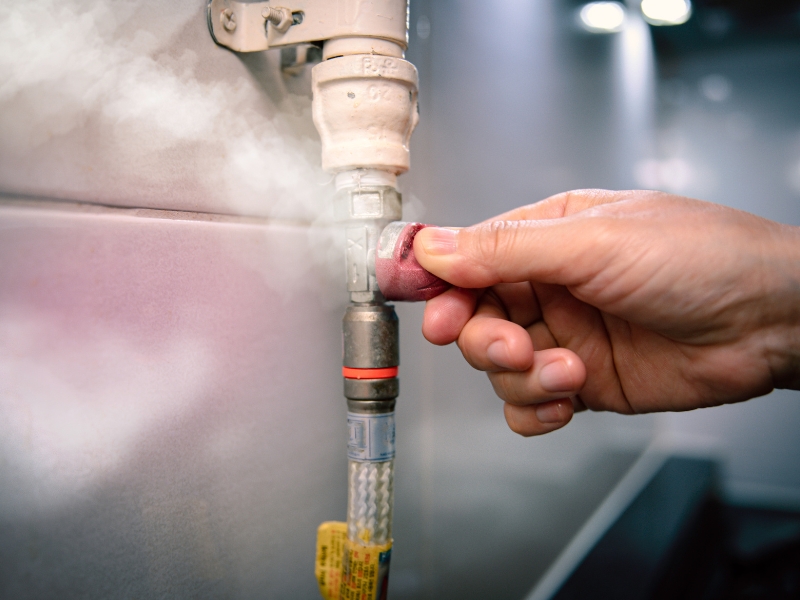
A gas line leak isn’t just an inconvenience—it’s a potentially life-threatening emergency. At Nova Gas Works, we’ve seen firsthand how fast a small leak can turn into a major hazard. Whether it’s natural gas or propane, a leak can result in fires, explosions, health problems, and environmental damage.
Understanding what causes these leaks and how to recognize them quickly could save lives and property.
What Causes Gas Line Leaks in the First Place?
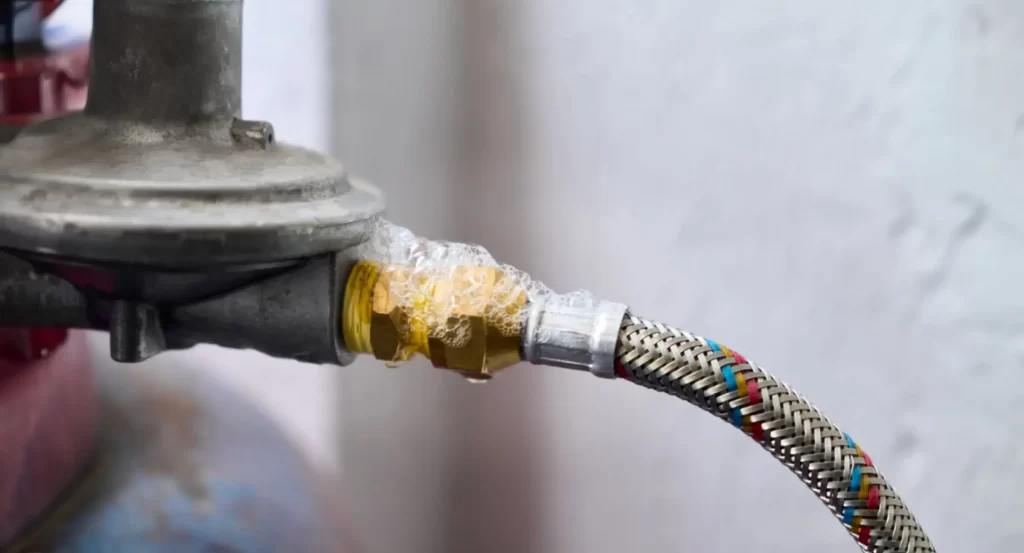
Most gas leaks are preventable—but only if you know what to look out for. Some of the most common causes include:
- Aging infrastructure – Older pipes can corrode or degrade over time, especially in older homes or buildings.
- Improper installation – DIY installations or poor workmanship often lead to loosened joints or faulty connections.
- Ground movement or weather events – Earthquakes, heavy rains, or freezing temperatures can shift or crack underground lines.
- Appliance malfunction – Gas stoves, dryers, and furnaces can develop leaks if not maintained properly.
- Rodent damage – Believe it or not, small pests can chew through plastic or rubber gas lines.
Why Gas Leaks Are Extremely Dangerous
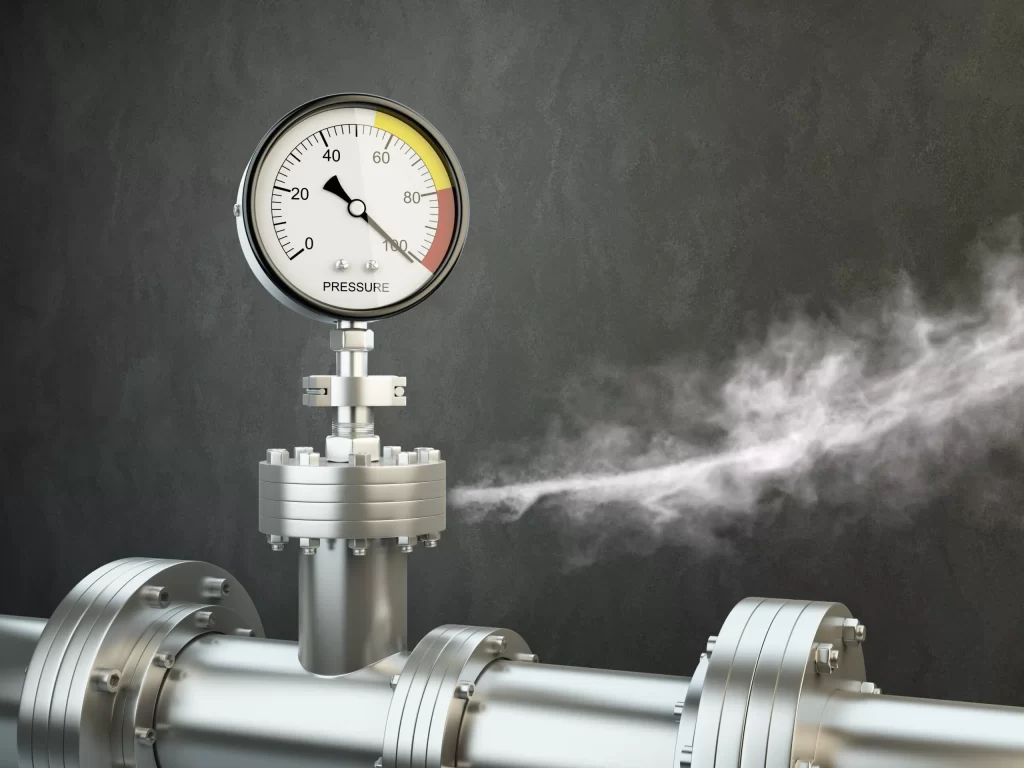
Natural gas is highly flammable and invisible. It doesn’t take much for a spark to ignite a disaster. But even without fire, gas leaks pose serious threats:
Health Risks to Humans and Pets
- Short-term exposure: Dizziness, nausea, fatigue, headaches
- Long-term exposure: Respiratory issues, carbon monoxide poisoning
- Pets may show symptoms first: Excessive drooling, unusual lethargy, vomiting
Schedule an Emergency Inspection Today!
Fire and Explosion Risk
- Natural gas + a small flame or spark = catastrophic explosion
- Even static electricity or flipping a light switch can be enough
Environmental Consequences
- Natural gas contains methane—a greenhouse gas 80+ times more potent than carbon dioxide
- Leaks contribute to climate change and air quality degradation
Signs of a Gas Leak You Should Never Ignore
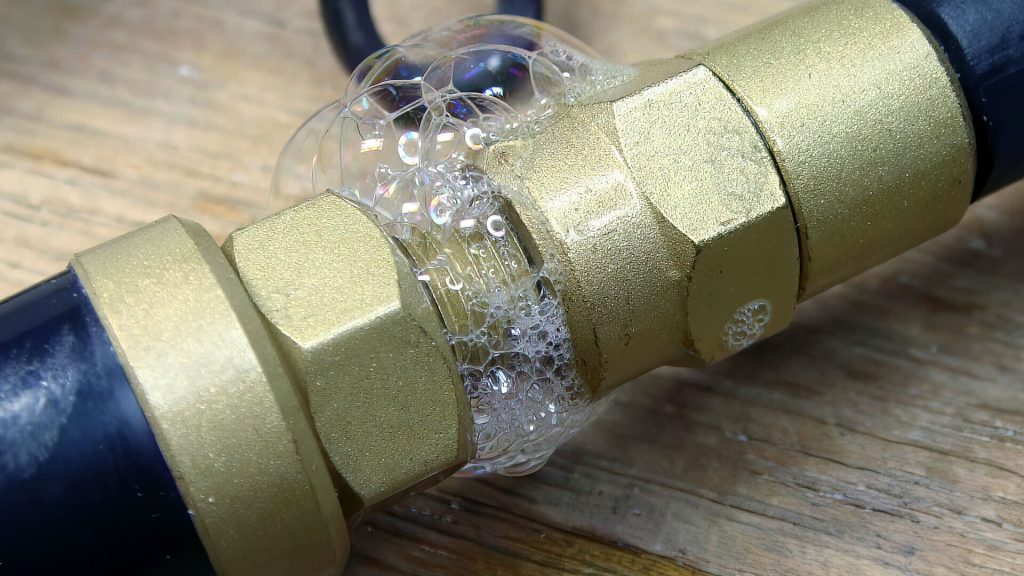
Knowing what to look for is critical. Here’s how to spot a gas leak using your senses and simple observation:
1. Smell: Rotten Egg Odor
Natural gas is odorless by itself. Utility companies add mercaptan, a sulfur-like compound, to make it detectable—giving it that telltale “rotten egg” scent. (See: Gas Leak Smell Explained for more.)
2. Sound: Hissing or Whistling
If you hear these sounds near a gas appliance or along a pipeline, you may have a pressurized leak.
3. Sight: Physical and Environmental Clues
- Dead or discolored vegetation over a buried pipeline
- Dust clouds near the ground for underground leaks
- Bubbles in water if a line runs under wet areas
- Pilot lights that won’t stay lit
Can You Rely on Your Pets to Detect a Leak?
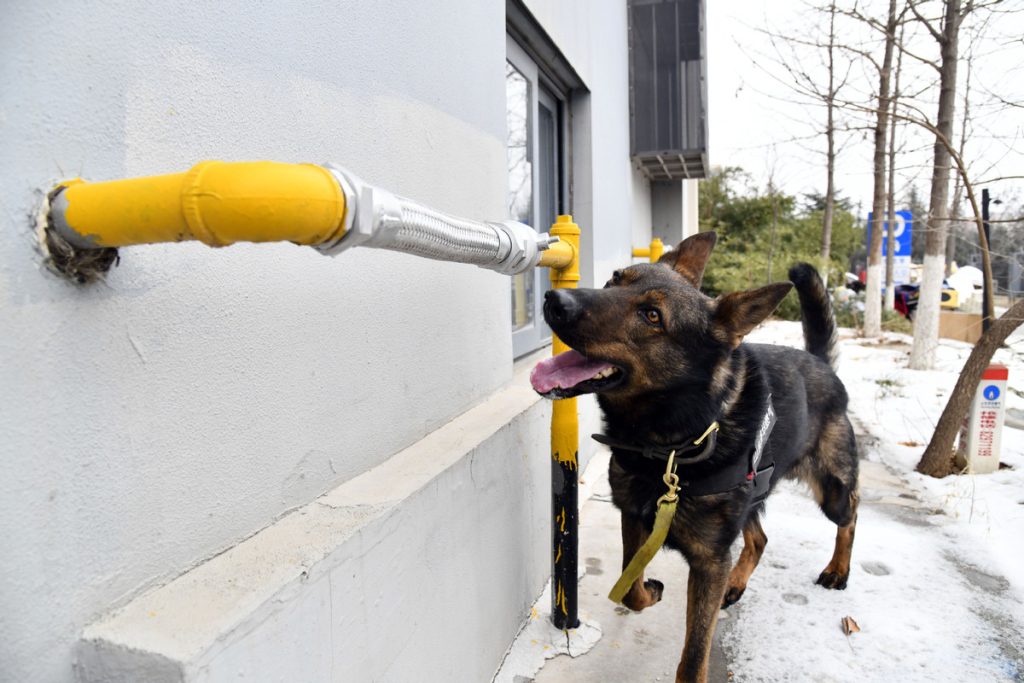
Absolutely. Dogs and cats may detect a gas leak before you do:
- Refusing to enter a room
- Scratching at walls or floors
- Vomiting or collapsing without obvious cause
If your pet suddenly acts strange and you can’t explain it, consider a possible gas leak.
Tools and Methods to Detect a Gas Leak
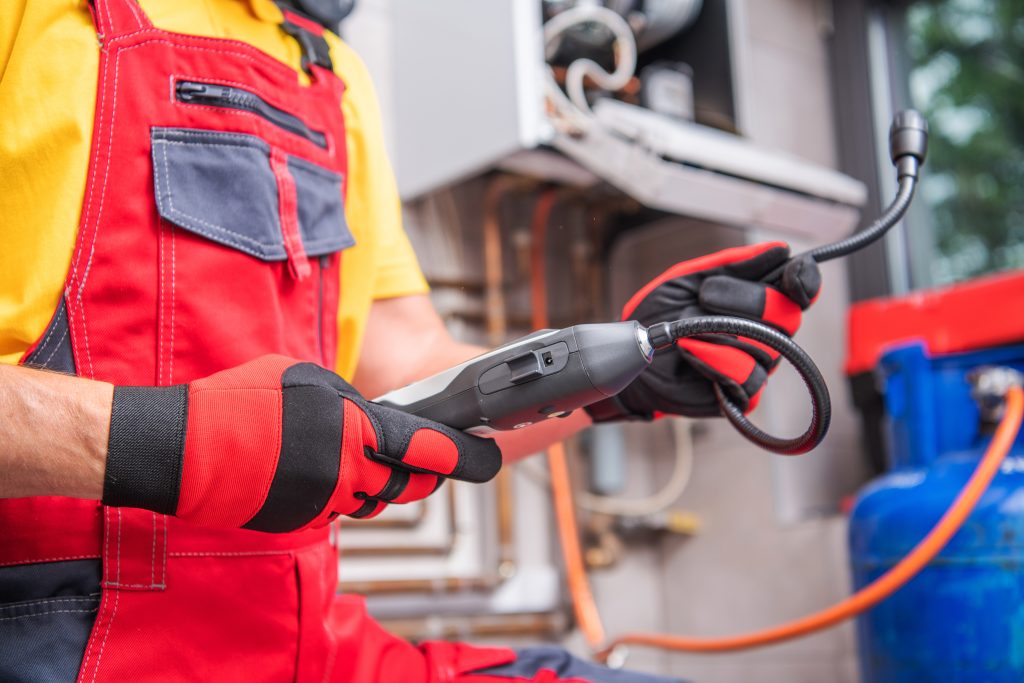
You don’t have to rely only on your senses. Here are other detection methods used by homeowners and pros alike:
Soapy Water Test (DIY but Use With Caution)
- Mix dish soap and water in a spray bottle
- Spray it on joints and connections
- Bubbles will form where gas is escaping
Schedule an Emergency Inspection Today!
Note: This is a quick test but not a substitute for professional inspection.
Handheld Gas Detectors
- Available at hardware stores
- Detect methane and propane concentrations in the air
- Useful near appliances or pipes
Monitor Your Gas Bill
An unexplained spike could mean gas is leaking unnoticed, especially if your usage hasn’t changed.
What to Do Immediately If You Suspect a Gas Leak
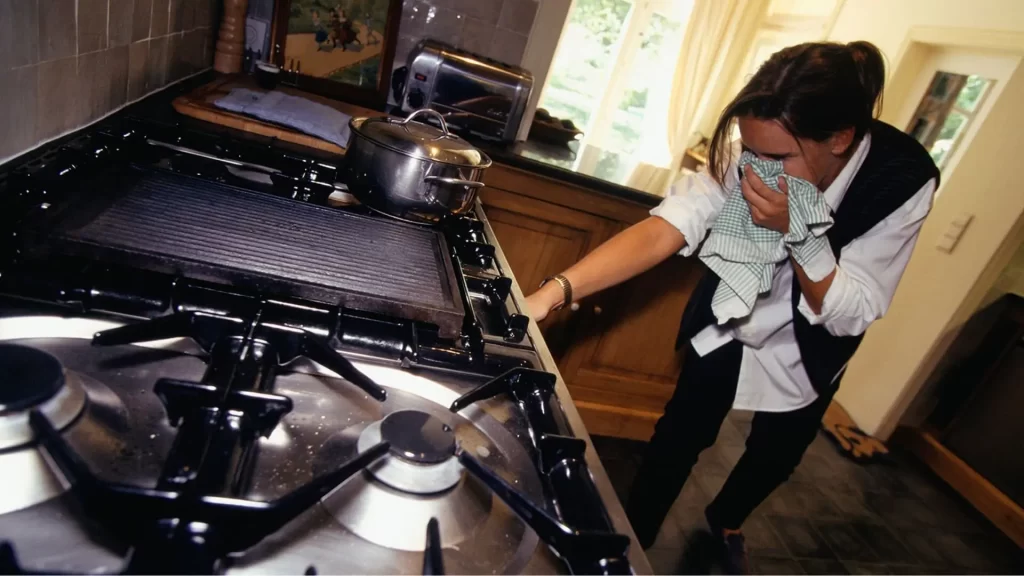
Act quickly and carefully. Even hesitation can be dangerous.
Step 1: Leave the Area Immediately
- Do not turn lights on or off
- Do not use any electrical appliances
- Do not light matches or smoke
- Do not use your phone until you’re at a safe distance
Step 2: Call for Help
- Once safely outside, contact:
- Your gas provider’s emergency line
- 911 if the situation is urgent
- Nova Gas Works if you’re in Northern Virginia, Maryland, or D.C.
- Your gas provider’s emergency line
Step 3: Open Windows (If Safe to Do So)
Only if the leak is small and there’s no risk of ignition, open windows and doors to let gas escape.
After the Emergency: Steps to Take Before Returning Home
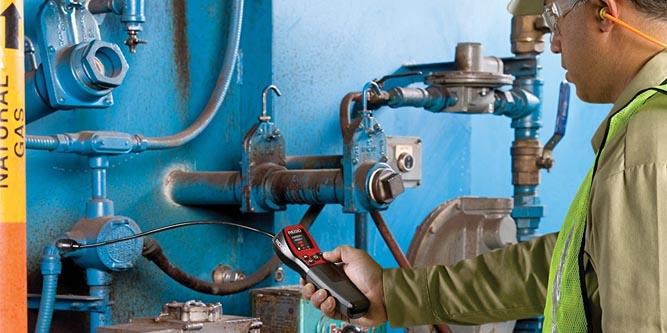
Once the leak is suspected or confirmed and the gas has been shut off:
Don’t Re-Enter Without Clearance
Wait for professionals to give the green light before going back inside. The air needs to be tested.
Schedule a Thorough Inspection
Nova Gas Works offers certified inspections to find the exact location of leaks and assess all affected components.
Make Professional Repairs
Repairs must be done by a licensed gas contractor. This isn’t a DIY moment.
How to Prevent Gas Leaks in the Future
Schedule an Emergency Inspection Today!
Prevention is the most powerful protection. Take proactive steps to avoid emergencies.
Regular Maintenance Checks
- Annual inspections by licensed contractors
- Include all gas-powered appliances and line connections
Install Gas Leak Detectors
- Plug-in or battery-powered alarms alert you to dangerous gas levels
- Install near appliances and in basements
Educate Everyone in the Household
- Teach everyone what a gas leak smells and sounds like
- Make sure they know what to do and who to call
- Post emergency numbers on the fridge
What About “Odor Fade”? Can It Make a Leak Undetectable?
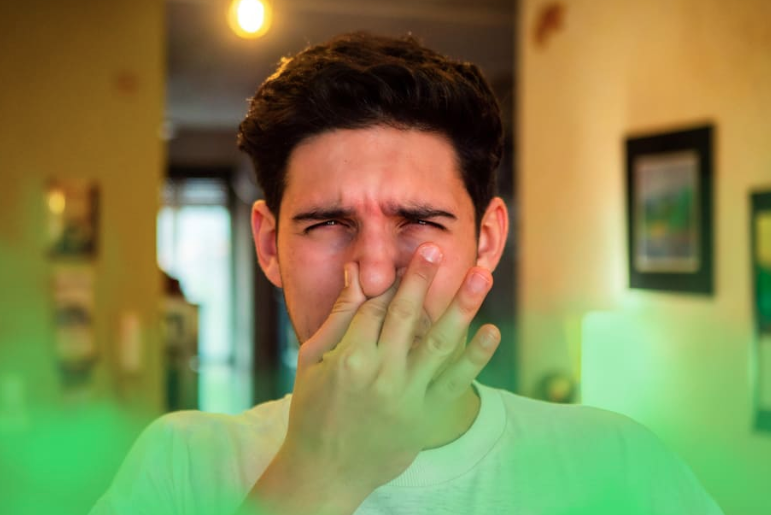
Yes, and it’s an important risk most people don’t know:
- In certain conditions (like rusting pipes or new construction), mercaptan can fade
- That means you won’t smell the gas—even though it’s leaking
- This is why detectors and inspections are critical, especially after pipe replacements or new appliance installation
Frequently Asked Questions About Gas Leaks
Can I Fix a Gas Leak Myself?
No. Only licensed professionals like Nova Gas Works should handle gas line repairs.
How Often Should I Have My Gas Lines Inspected?
- Once a year is the standard recommendation
- Immediately after any home renovations involving gas appliances
What Should I Do if I Smell Gas Outside?
- Treat it as seriously as an indoor leak
- Stay clear of the area and call your gas provider or 911
Do Carbon Monoxide Detectors Help With Gas Leaks?
Not directly. Carbon monoxide detectors are for CO poisoning, which results from incomplete combustion—not raw gas leaks. You need methane-specific gas detectors.
Ready To Get Started With Your Next Project?
Contact us today at 703-424-5467 or fill out our online form. Choose NOVA Gas and experience the difference!